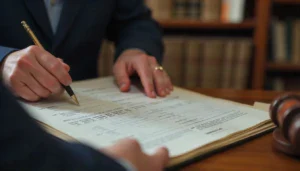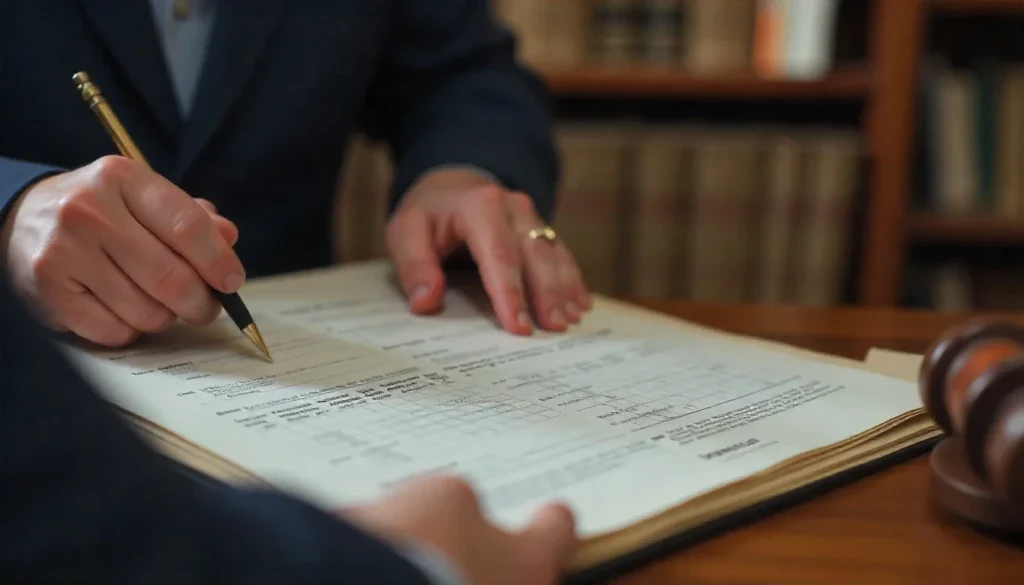What Does a Conveyancer Do? A Complete Guide for Buyers and Sellers in Australia
Buying or selling a property is one of the most significant financial decisions many Australians will make. Whether you’re a first-time buyer, a seasoned investor, or selling the family home, the process involves a range of legal and financial steps that can be overwhelming. That’s where a conveyancer comes in.
In this guide, we’ll break down what a conveyancer does, why you need one, how they differ from solicitors, and how they help both buyers and sellers navigate the complex world of property transactions in Australia—particularly in New South Wales.
What Is a Conveyancer?
A conveyancer is a licensed professional who specialises in the legal aspects of buying and selling property. Their main role is to ensure the transferring of property ownership from one person to another is done smoothly, legally, and in compliance with all relevant laws.
In Australia, conveyancers are regulated by state authorities, and their work is protected by professional indemnity insurance. While they are not solicitors, they are qualified to handle most residential property matters under property law, particularly for straightforward sales and purchases.
What Does a Conveyancer Do When Buying a House?
1. Review the Contract of Sale
One of the first and most important tasks is reviewing the contract of sale. This legal document outlines the terms and conditions of the property purchase. A conveyancer ensures that the contract is fair, complies with legal standards, and protects your interests.
They will also:
-
Identify any special conditions
-
Check for restrictions or easements on the property
-
Explain complex legal terms in plain language
2. Conduct Legal Searches
Your conveyancer will carry out various legal and local council searches to ensure there are no surprises, such as:
-
Land zoning or environmental issues
-
Outstanding rates or levies
-
Building approvals or unapproved structures
3. Liaise with the Real Estate Agent and Lender
They’ll coordinate with your real estate agent and bank or financial institution to keep all parties informed and ensure financing and documentation are in order.
4. Calculate Stamp Duty and Other Costs
Stamp duty is a significant government tax that varies by state. Your conveyancer will:
-
Calculate your exact stamp duty obligation
-
Advise you on exemptions or concessions (e.g., first home buyers)
-
Ensure all duties and taxes are paid on time
5. Oversee the Settlement Process
The settlement process is when the property officially changes hands. Your conveyancer will:
-
Coordinate the exchange of funds and documents
-
Liaise with the seller’s conveyancer or solicitor
-
Ensure that the title is transferred to your name
6. Advise on Legal Requirements
Conveyancers ensure compliance with all legal requirements, avoiding costly errors that could delay or derail the transaction.
What Does a Conveyancer Do When Selling a House?
If you’re selling a property, your conveyancer’s role is just as important.
1. Prepare the Contract of Sale
Your conveyancer will draft a legally binding contract of sale, ensuring it includes all required disclosures and special conditions.
2. Coordinate With Your Real Estate Agent
They’ll provide the contract to your real estate agent, handle buyer inquiries, and keep you updated throughout the process.
3. Handle Legal Documents
They’ll manage legal paperwork including:
-
Property certificates
-
Title deeds
-
Land tax clearance certificates
4. Assist with Settlement
Your conveyancer ensures that:
-
Your mortgage is discharged properly
-
The buyer’s payment is received in full
-
Ownership is transferred without complications
5. Ensure Compliance
They’ll confirm that you meet all obligations under property law and avoid post-settlement disputes.
Do I Need a Conveyancer to Buy a House?

Legally, you are not required to use a conveyancer or solicitor to buy a house in Australia. However, given the complexity of property transactions and the potential for mistakes, most people engage a conveyancer to:
-
Protect their legal rights
-
Avoid contract issues
-
Navigate state-specific laws
Using a conveyancer significantly reduces the risk of errors that could lead to financial loss or delay the purchase.
How Much Do Conveyancer Fees Cost?
Conveyancer fees in Australia can vary based on location and complexity. On average, you can expect to pay:
-
$800 – $2,200 for buying or selling a house
-
Additional costs for disbursements like title searches and council certificates
While cost is important, it’s crucial to choose a good conveyancer who provides value, communicates clearly, and is experienced in your local area.
Conveyancer vs Solicitor: What’s the Difference?
Both conveyancers and solicitors can handle property transactions, but there are key differences:
| Conveyancer | Solicitor |
|---|---|
| Specialises in property law | Broad legal knowledge |
| Usually more affordable | Can handle complex legal matters |
| Ideal for standard residential sales | Useful for disputes, trusts, or litigation |
| Licensed for conveyancing only | Can represent clients in court if needed |
For most routine purchases and sales, a conveyancer is sufficient. For more complex property matters or if disputes arise, a solicitor may be the better option.
What Does a Conveyancer Do in a House Sale?
To summarise, when selling a house, a conveyancer will:
-
Draft the contract of sale
-
Handle legal paperwork and disclosures
-
Communicate with the buyer’s conveyancer
-
Ensure settlement goes smoothly
-
Provide advice on legal requirements and your obligations
Engaging a Conveyancer in Australia
When engaging a conveyancer, ensure they:
-
Are fully licensed and insured
-
Have a good reputation and experience in your region
-
Offer clear, upfront quotes with no hidden fees
-
Are responsive and willing to answer your questions
It’s a good idea to consult a conveyancer as soon as you’re serious about buying or selling property.
FAQs About Conveyancers in Australia
1. What is the main role of a conveyancer?
A conveyancer manages the legal transfer of property ownership, ensuring the transaction is legally sound and compliant with all regulations.
2. Can I buy or sell a house without a conveyancer?
Technically, yes. But due to the complexity of property law and the risks involved, it’s not recommended unless you have legal experience.
3. When should I hire a conveyancer?
Ideally, as soon as you decide to buy or sell. This ensures proper review of the contract and enough time to meet deadlines.
4. Is a solicitor better than a conveyancer?
It depends. For standard residential transactions, a conveyancer is usually sufficient. For complex matters, a solicitor may be more appropriate.
5. How do I know if a conveyancer is licensed in NSW?
You can check with the NSW Office of Fair Trading to verify their licence and any disciplinary history.
Final Thoughts
Whether you’re buying or selling, a conveyancer plays a crucial role in protecting your interests and ensuring that the property transaction goes smoothly. From reviewing contracts and calculating stamp duty to overseeing the settlement process and liaising with the real estate agent and financial institution, their expertise saves time, stress, and potential legal issues.
If you’re entering the property market in NSW, engaging a qualified, experienced conveyancer should be at the top of your to-do list.
Need Help With Conveyancing in NSW?
At Lyon Legal Services, we offer personalised, professional conveyancing services to clients across New South Wales. Whether you’re buying your first home, investing, or selling property, our team is here to guide you every step of the way.
Contact us today for a free consultation and get peace of mind with your property transaction.


















